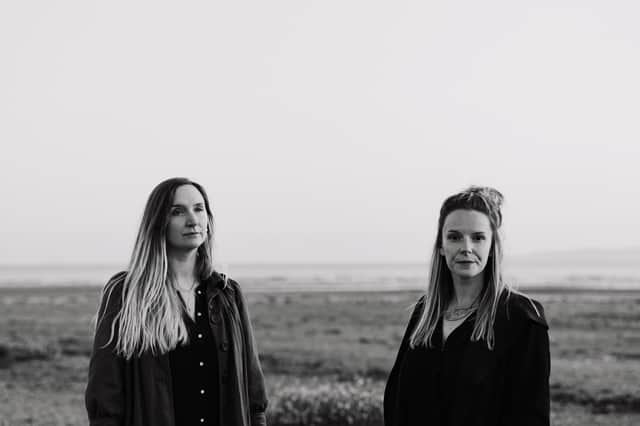Heal & Harrow: the folk duo telling the true stories of those executed for witchcraft


Talk witches and, with weary inevitability, the stereotype emerges, all hooked nose, warts and pokey hat, not unlike the silhouette of a broomstick-flying witch that distastefully adorns police cars in Salem, Massachusetts – the “witch city”, where the infamous witch trials of 1692 still fuel a cottage industry.
Yet “witches” – almost 3,000 of whom were executed under Scotland’s Witchcraft Act of 1563 – were more likely to be your neighbour, who perhaps seemed a bit doitered, maybe a herbalist and local healer, or simply the victim of malicious grudge or gossip. And when harpist Rachel Newton and fiddler Lauren MacColl, both award-winning folk musicians, found themselves contemplating the Witch’s Stone in Dornoch, commemorating Janet Horne, the last person in Scotland to be legally executed under the Act in 1727, they started thinking way beyond stereotypes.
Advertisement
Hide AdAdvertisement
Hide AdThe result is their first full album collaboration as a duo, Heal & Harrow, due for release on 4 February and part of a wider project, based on the writing of Mairi Kidd, author of Warriors and Witches and Damn Rebel Bitches. Each track commemorates an individual, historically recorded or supposed, with Kidd creating stories for each one which are being recorded by a team of readers for an associated podcast.
“Visiting the Witch Stone, I think what struck us at the time was how little we really knew about the witch trials,” says Newton. “At school we maybe learn about the clearances and these big events in history, but we didn’t have any awareness [of the trials]. What struck us was that all these stories and imaginings told a wider story. Of course it wasn’t just women who were accused and killed, but I think about 85 per cent were women, and some of the reasons were very gendered.”
Exploring this shameful episode in Scotland’s history, with its malignant Presbyterian misogyny, the pair felt moved to commemorate and honour its victims and, in doing so, became increasingly conscious of continuing misogyny and gender inequality today.
The album comes at a time when a private members’ bill, launched by the Witches of Scotland group, is being considered by the Scottish Parliament, in the hope of an official apology to all those executed as “witches”:
“It’s a bit of a coincidence that’s it’s all happening at the same time,” says Newton, “but it’s great to have awareness of the topic being brought forward at this time.”
The duo’s scheduled launch at Celtic Connections on 21 January fell victim to Covid restrictions, although a short set from the album has been filmed for online access, and they embark on a ten-day UK tour at Inverness’s Eden Court on 9 February.
For such a grim topic, the music of Heal & Harrow, involving singing and spoken word as well as interweaving harp, fiddle and judicious electronics, is beautiful – dare one say spellbinding – and with a restitutive tenderness, although also generating a hypnotic sense of unease, as in the opening Lilias, channelling a Fife victim who was consigned to the intertidal zone for burial: “You’ll find me on the shoreline ...”
Advertisement
Hide AdAdvertisement
Hide AdThe pair have each recorded previous projects exploring folk superstition while, more recently, MacColl’s Landskein and Newton’s involvement in Spell Songs, based on the Lost Words book by Robert Macfarlane and Jackie Morris, tapped into environmental issues. “Heal & Harrow brings in aspects of all of that, certainly,” Newton agrees. “Being from a folk background, I suppose we’re drawn to stories of place and of people’s culture and beliefs.”
So, a work of reconciliation or accusation? “I suppose part of the idea behind the name, Heal & Harrow, was that it’s a harrowing subject, but there is also this aspect of trying to humanise very real people who were just unfortunate to be part of something that wasn’t their fault at all. So definitely, yes: healing and remembering.”
Heal & Harrow is out on Shadowside Records, see www.healandharrow.com
A message from the Editor
Thank you for reading this article. We're more reliant on your support than ever as the shift in consumer habits brought about by coronavirus impacts our advertisers.
If you haven't already, please consider supporting our trusted, fact-checked journalism by taking out a digital subscription at https://www.scotsman.com/subscriptions